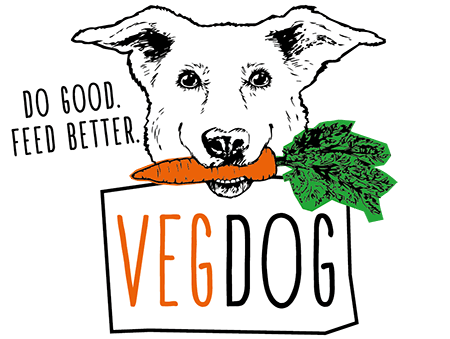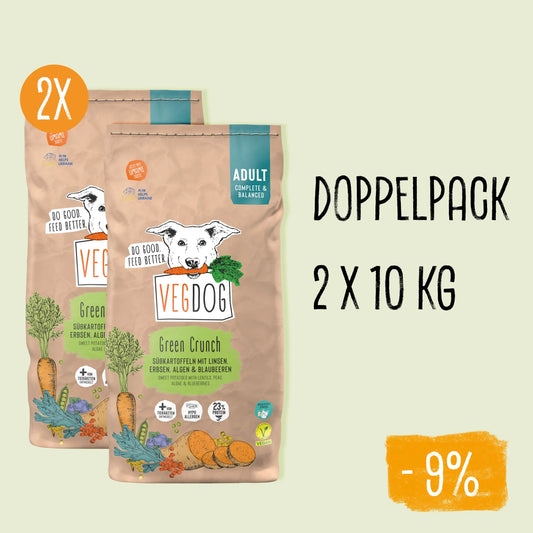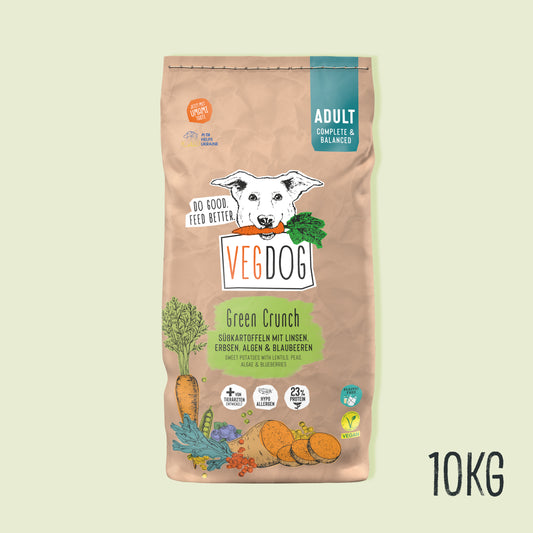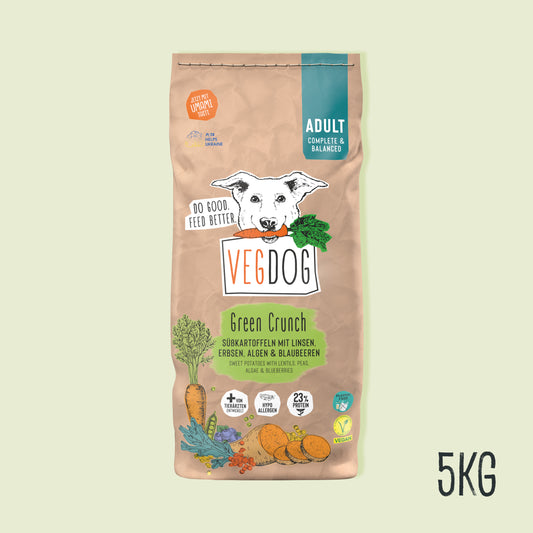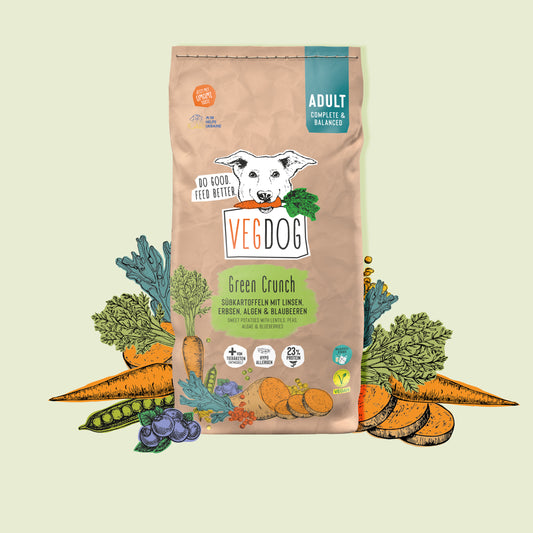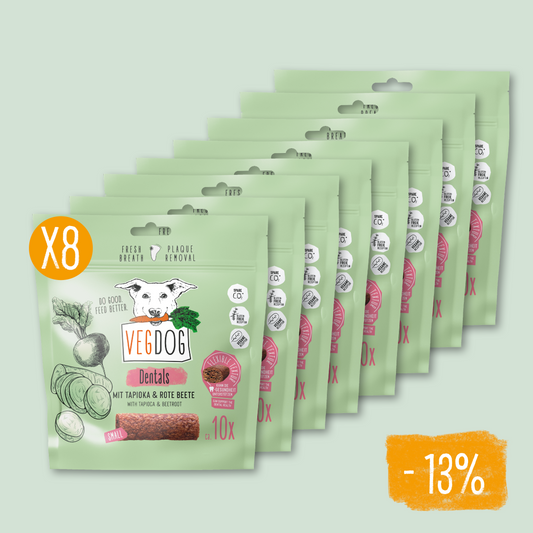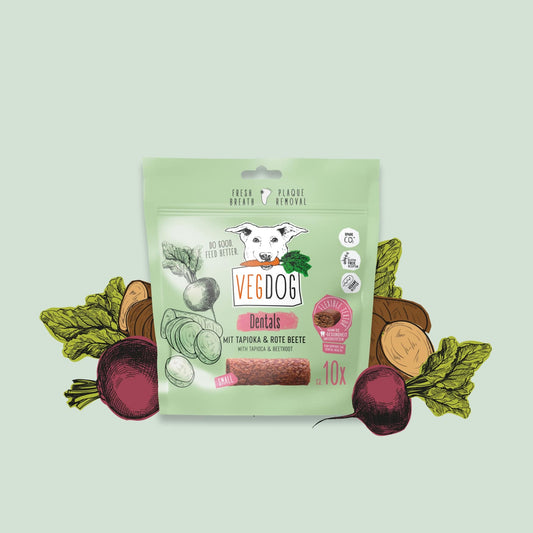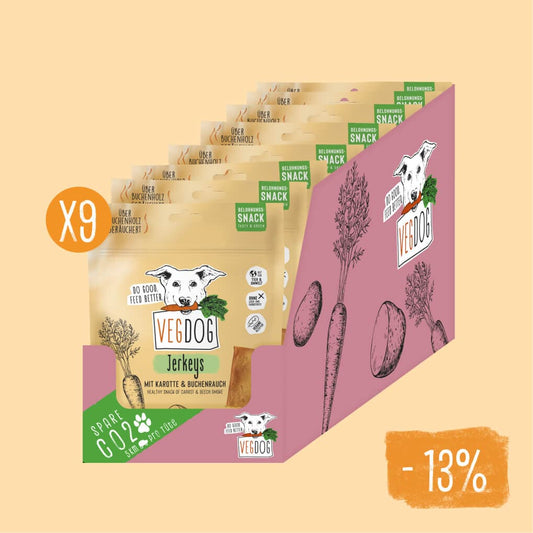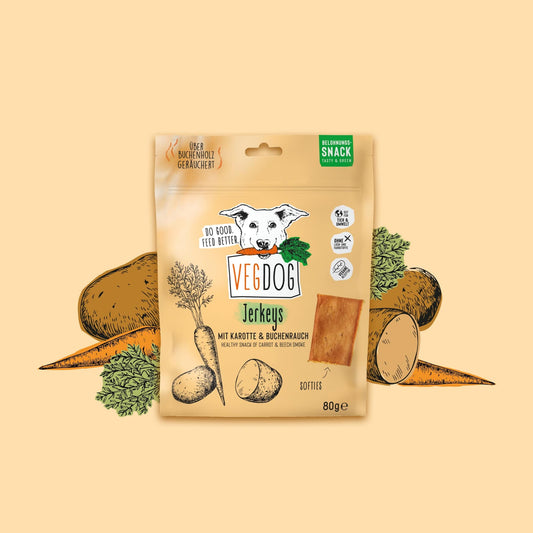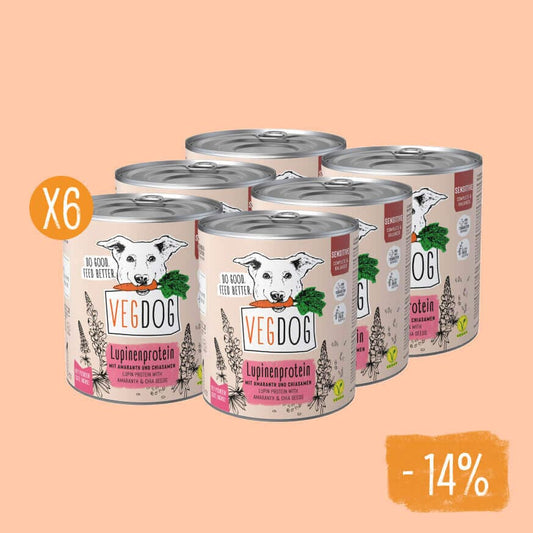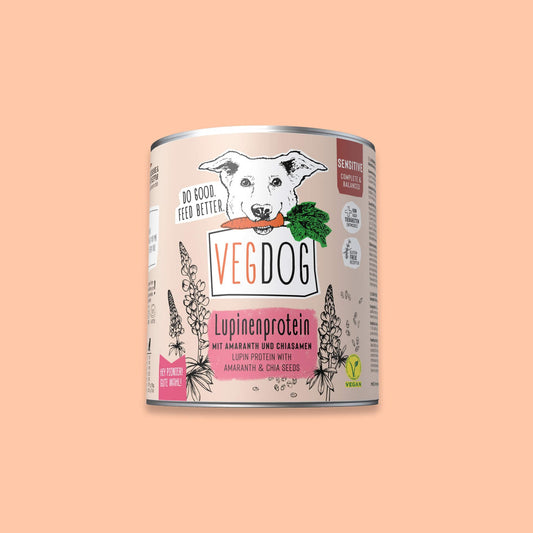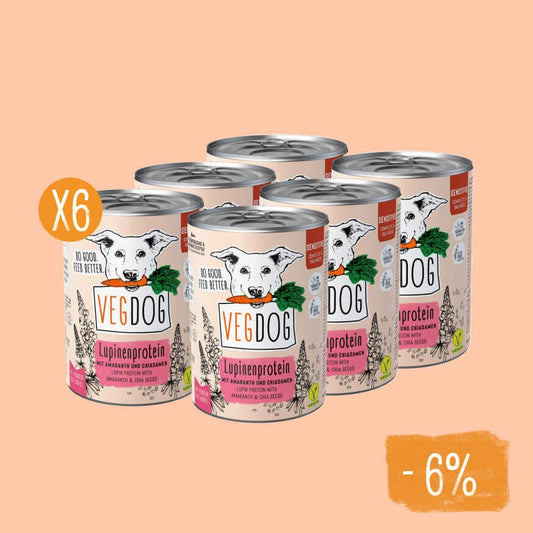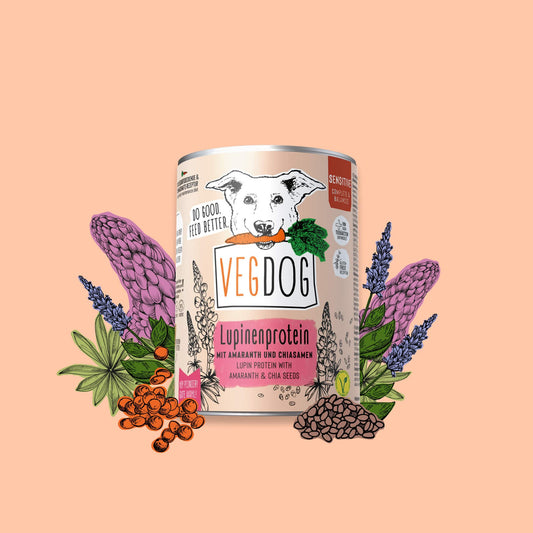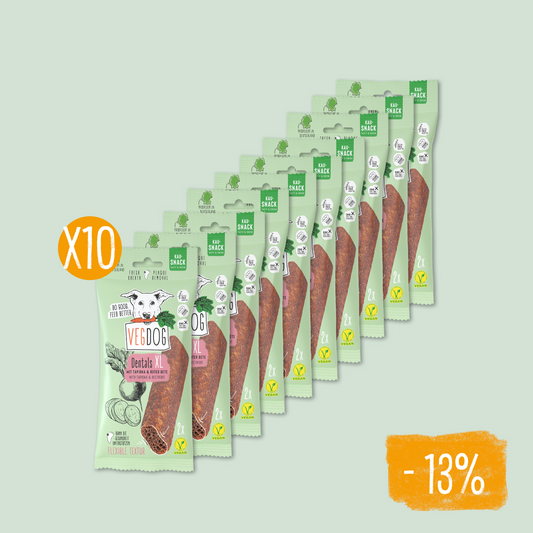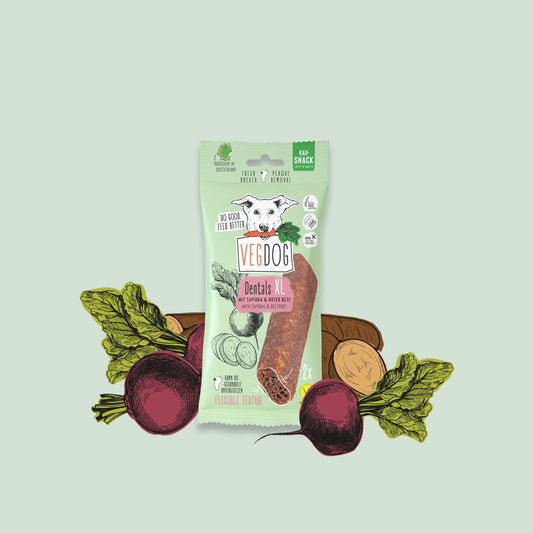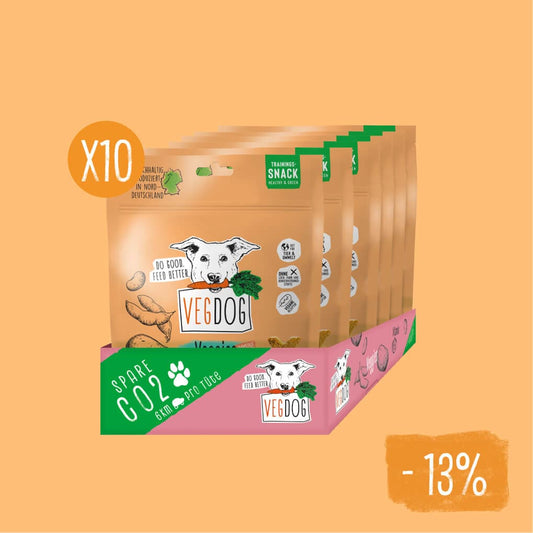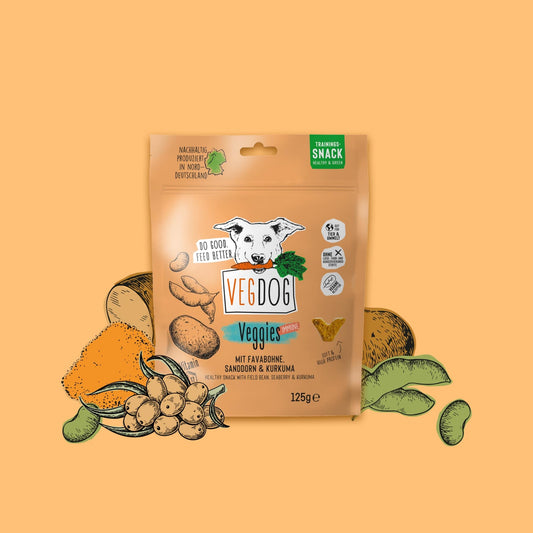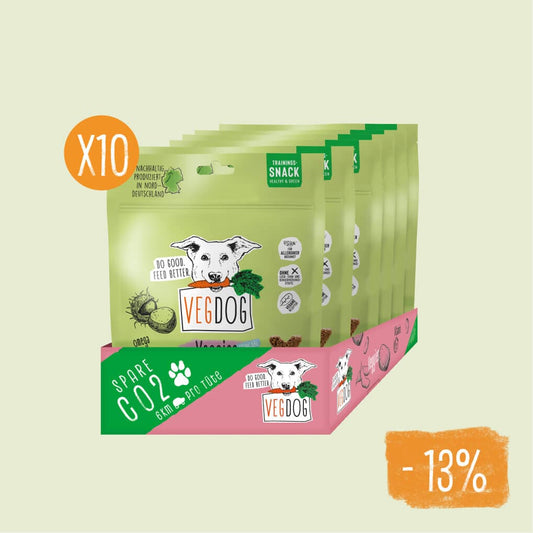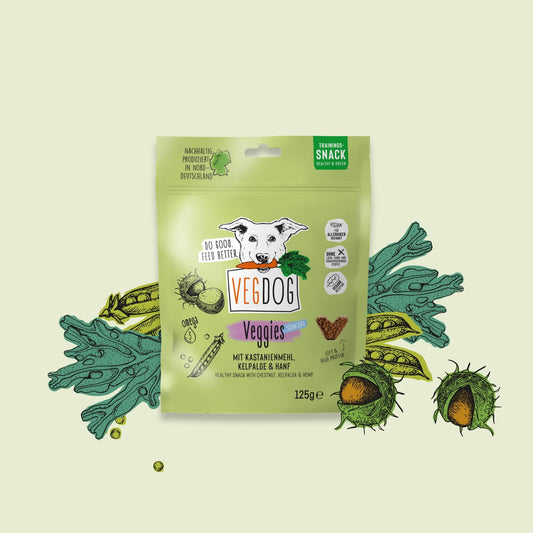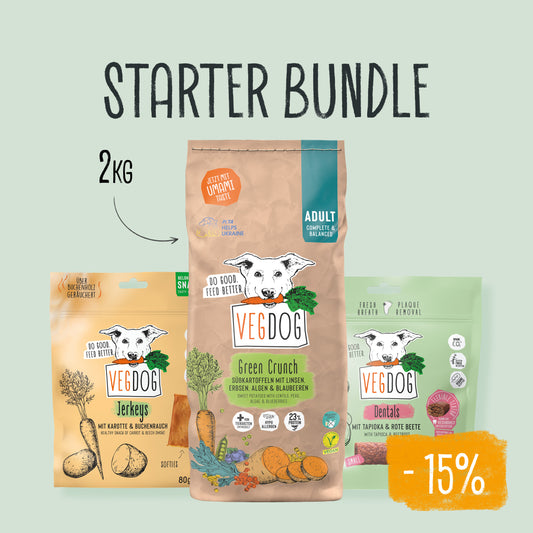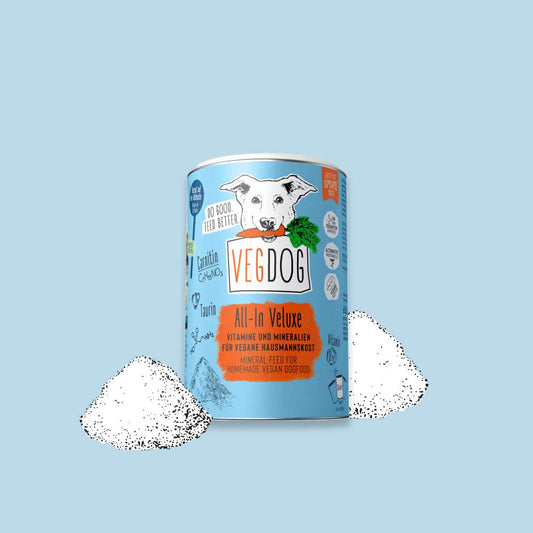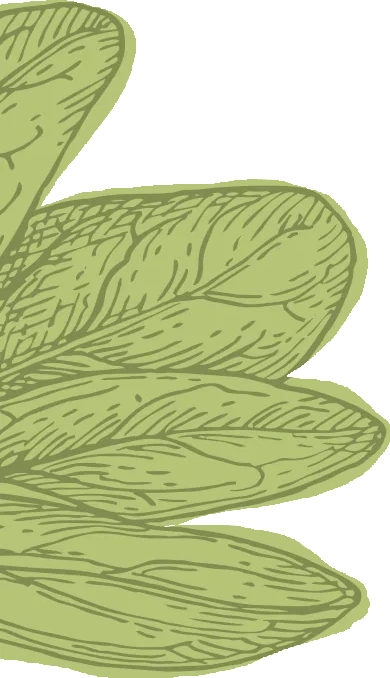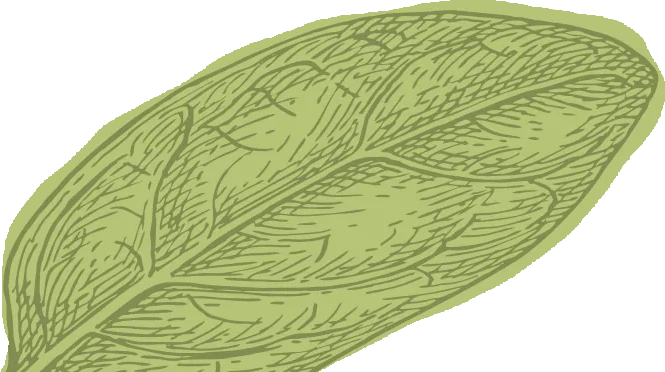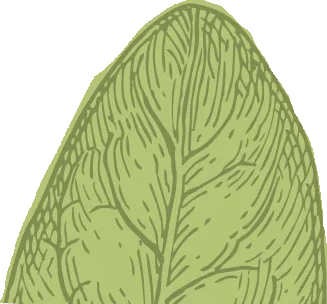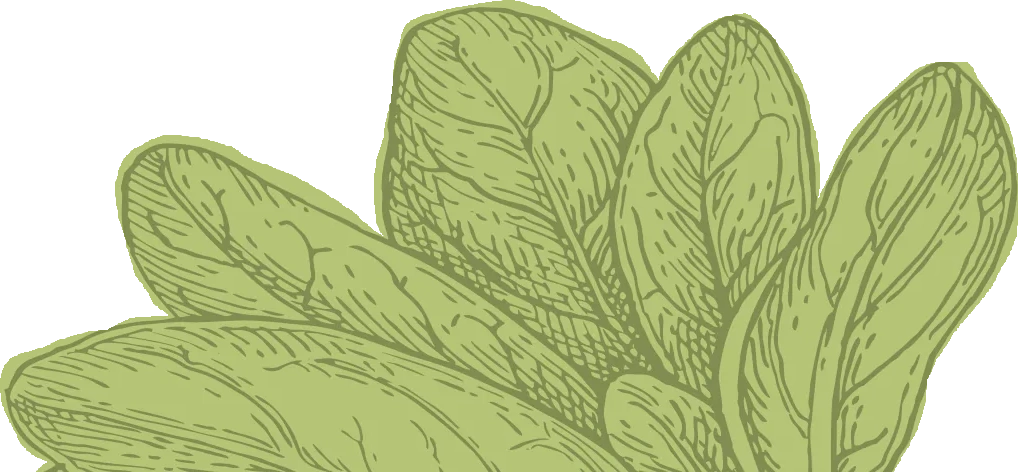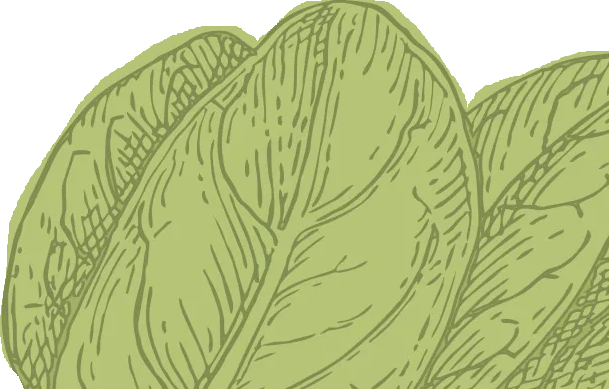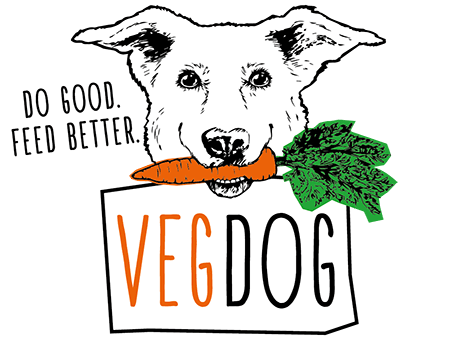grain-free dog food
Some dogs cannot tolerate certain types of grain. Our grain-free products are perfect for this!
GREEN CRUNCH
2 x 10 kg
GREEN CRUNCH
10 kg
GREEN CRUNCH
5 kg
GREEN CRUNCH
2 kg
DENTALS
8 x 120 g
DENTALS
120 g
JERKEYS
9 x 80 g
JERKEYS
80 g
SENSITIVE lupine protein
6 x 800 g
SENSITIVE lupine protein
800 g
SENSITIVE lupine protein
6 x 400 g
SENSITIVE lupine protein
400 g
DENTALS XL
10 x 100 g
DENTALS XL
100 g
VEGGIES immune
10 x 125 g
VEGGIES immune
125 g
VEGGIES skincare
10 x 125 g
VEGGIES skincare
125 g
POPS
12 x 20 g
starter bundle
ALL-IN VELUXE
Cook-it-yourself Box
Grain-free dog food: The right choice for nutritionally sensitive furry friends
Nutrition plays a crucial role in the health and well-being of dogs. Therefore, it is important for many dog owners to feed their four-legged friends a healthy and balanced diet. For several years now, many have been turning to grain-free dog food. But why? We will explain this below. We will give you an insight into the world of grain-free dog food and show you the advantages of this diet.
What is grain-free dog food?
Grain-free dog food does not contain any grains. In order to feed your dog according to its needs, it is important that the grain in the food is replaced with other ingredients. Grains are an important source of carbohydrates and also contain fats, minerals, trace elements and vitamins. All of these nutrients must also be present in grain-free dry food and wet food.
In grain-free dog food, the grain portion is replaced with vegetables. Peas and sweet potatoes are popular sources of carbohydrates. Many manufacturers also ensure that their grain-free dog food contains a high meat portion.
Why should you feed your dog a grain-free diet?
In principle, grain is not bad for your dog. However, it is not as easy to digest and can lead to your furry friend developing a food intolerance. There are therefore many reasons for switching to grain-free food.
Grain-free diet for food allergies
Does your dog often suffer from digestive problems such as stomach pain, flatulence or diarrhea? Or does he tend to itch and lick himself frequently? All of these can be symptoms of a food allergy . Grain, especially wheat, is a major allergen in dogs and can therefore be a common trigger for allergies and food intolerances. Grain-free dog food could therefore be the solution to the health problems.
If your dog is intolerant to a type of grain, the solution does not necessarily have to be grain-free dog food. Some four-legged friends are simply intolerant to gluten. Grains such as corn, millet and rice, on the other hand, are gluten-free and therefore usually easier to tolerate.
Grain-free dog food: The best choice for dogs with diabetes
The grain-free diet is not only suitable for four-legged friends who have a sensitive stomach. Dogs who suffer from diabetes should also avoid food that contains grain. The carbohydrates in grain contain glucose, which causes an increased sugar level in the blood and thus increases the dog's insulin level. In the long run, this is anything but healthy.
Large selection: dry and wet food without grain
There is now a wide range of grain-free dog foods on the market that meet the needs and preferences of different dogs. In addition to grain-free dry food, there is also wet food and grain-free dog treats. This variety allows dog owners to choose the most suitable food for their loyal companions - depending on activity level and special nutritional needs.
Food for all ages: from puppies to seniors
The needs of puppies and seniors are significantly different from those of adult dogs. Grain-free dog food is a great choice for these two age groups as well. Grain-free puppy food contains all the necessary nutrients a growing puppy needs without the burden of excessive grains. Senior dogs also benefit from grain-free dog food as it is easier to digest and helps reduce weight fluctuations and inflammation that can occur with age.
Advantage of grain-free food for dogs
Grain-free dog food has gained popularity in recent years. It's no wonder, as it offers a variety of benefits, including the following:
- Particularly well tolerated by food-sensitive and allergic dogs
- Suitable for elimination diets
- Improves the intestinal flora
- Reduces the risk of gastric torsion
- Less likely to cause weight fluctuations
- Does not promote the formation of tartar
What alternatives are there to grain-free dog food?
If your beloved furry friend suffers from a food allergy, you could try the vegan dog food from VEGDOG. This is 100% plant-based and gluten-free. This food does not contain the main allergens of dogs, which include wheat and a variety of animal proteins. This means that the vegan dog food is very well tolerated - especially for dogs with food intolerances.
Conclusion
Grain-free dog food is more than just a trend. It offers numerous benefits for the health and well-being of your four-legged friend. Although dogs can get carbohydrates from various sources in their diet, grains are not absolutely necessary. In fact, too much grain can lead to digestive problems and allergies. Grain-free dog food can therefore be an excellent choice if you want to feed your dog a healthy diet.
FAQ
Grains are generally not digested well by dogs. Additionally, your dog may develop a grain allergy or gluten intolerance, which is why grain-free dog food may be a better choice.
Grains should not be in dog food if the dog has a food allergy or intolerance. Some dogs have difficulty digesting grains, which can lead to digestive and skin problems.
A grain intolerance in dogs can manifest itself in gastrointestinal problems, skin rashes, itching, excessive scratching and licking. A veterinarian can make an accurate diagnosis.
